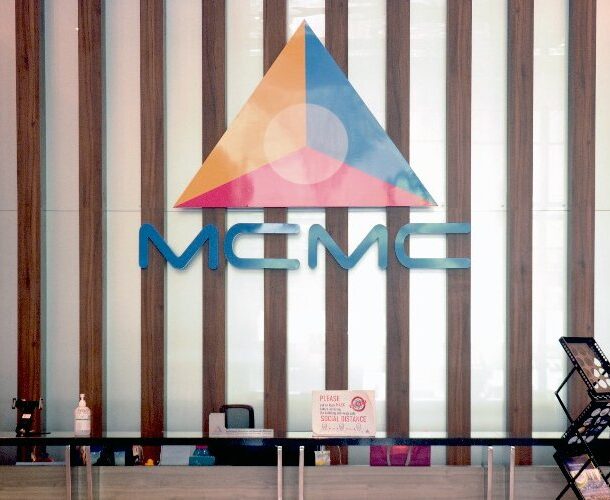
The Centre for Independent Journalism (CIJ) has condemned the Malaysian Communications and Multimedia Commission (MCMC)’s reported attempt of removing Twitter posts that were critical of the government’s alleged mishandling of the floods situation.
According to a news report, MCMC reported several flood-related hashtags to Twitter as they were “obscene” to ensure compliance with Section 233 of the Communications and Multimedia Act (CMA) 1998
“Freedom of expression (FOE) includes the fundamental right to seek and exchange ideas, opinions, and information to enable the public to form their own opinions.
“This freedom also allows for dissenting or alternative positions, specifically on issues of public interests, and ultimately promotes good governance by holding the State to account.
“It follows that dissent, the difference in opinion, and criticism of the government are protected and valid forms of expression,” CIJ said in a statement.
The watchdog said the limits and restrictions on any forms of expression in law must be clear and narrowly defined and serve a well-defined public interest function.
Furthermore, it said any limitations to expression and speech must always take into account internationally accepted standards, which are guided by human rights principles and instruments.
“A harm test is usually carried out to determine necessity, proportionality, and legality. Only if all three criteria have been met can restrictions take place.”.
CIJ said attempts to suppress dissent and criticism of the government to challenge or hold the State to account is grossly disproportionate to any legitimate aim of protecting public order or upholding our democracy.
It said censoring such dissenting and critical views should never be the norm – even if they make the government look bad.
“The role of the government is to promote democracy and allow dissenting voices to be heard and accessed, even if such voices are critical of policies or alleged mismanagement on the government’s part. Well-informed debates, which are crucial to informed decision-making, must be promoted instead of censored or criminalised – and that would include the difficult conversations the government needs to hear so they can do better”.
CIJ said it is also alarmed by the repeated use of Section 233 of the CMA to silence critical voices.
“Section 233 of the CMA is deeply problematic for its over-broad definitions accompanied with heavy punishment that infringes upon the constitutional right to FOE. The section allows a person(s) to be imprisoned for up to one year and fined up to RM50,000 for posting offensive content that annoys another person. This goes far beyond the legitimate restrictions allowed on FOE, such as preventing incitement to violence or for national security.
“This law must not be used arbitrarily by the State anymore. According to our media monitoring data, this year alone, at least 236 individuals were implicated in 140 police investigations, arrests, and charges related to Section 233 of the CMA,” the non-governmental organisation said.
It said any government that is too quick to put the weight of the State apparatus against dissenting voices and opinions raises alarm bells for a functioning democratic system.
“Critical voices are at the heart of transparency and accountability – which is crucial now more than ever as we experience a nationwide crisis in the form of floods. Heads of State and public officials should tolerate more, not less, criticism than ordinary citizens.
“The government cannot be exempted from the consequences of their actions, and there should be no impunity for those that limit freedom of opinion and expression through threats, harassment, and violence”.
CIJ is also concerned with MCMC’s priorities as a government agency responsible for communications in times of a national crisis in light of the gravity of the situation, especially when mortality rates are high.
The floods have caused tremendous property damage and disrupted the lives of thousands. MCMC should be proactive in coordinating information for search and rescue efforts as communication lines are down in affected areas, it said.
It adds MCMC’s act of attempting to censor content related to the floods is not only highly disrespectful of flood victims but speaks volumes on its regard to democracy and the right to discourse on important matters of public interest.
In the broader context of human rights, CIJ is more appalled that the Communications and Multimedia Ministry is being used as a shield to protect government failures.
As such, we call on the government and its various actors like MCMC to carry out the following concerted efforts without delay:
– Focus public resources towards providing timely and accessible updates and information on the flood and ongoing flood relief work, instead of cracking down on those being critical or dissenting towards alleged flood mismanagement by the State;
– Work together with Civil Society Organisations (CSOs) and social media companies to better understand and define online content removal and censorship while taking into account the local context, existing community standards by social media companies and keeping in line with international human rights standards on FOE, gender equality, non-discrimination, and diversity;
– Implement the Rabat Plan of Action on the prohibition of advocacy of national, racial, or religious hatred that constitutes incitement to discrimination, hostility, or violence, through a multistakeholder framework that promotes freedom of expression based on the principles of gender equality, non-discrimination, and diversity;
– Create an enabling environment that promotes critical thinking, healthy debates, transparency, and accountability from the government as well as measures focused on building the people’s trust in the government – not further undermine the people’s human rights;
– End and refrain from the continued use of intimidating measures to threaten and silence those exercising their fundamental human rights and speaking on behalf of the public and those marginalised in these very trying times, and halt all ongoing investigations, and;
– Stop using existing regressive legal provisions, such as Section 233 of the CMA, to censor and silence dissenting and non-conforming voices. The State must also review and adopt a moratorium on the arbitrary use of Section 233 of the CMA, besides moving towards repealing and amending its vague provisions per our Federal Constitution and international standards on FOE.
CIJ said it was ready to work with the Communications and Multimedia Ministry and with MCMC to push the reform agenda for a better promotion and protection of human rights.
Source: New Straits Times
